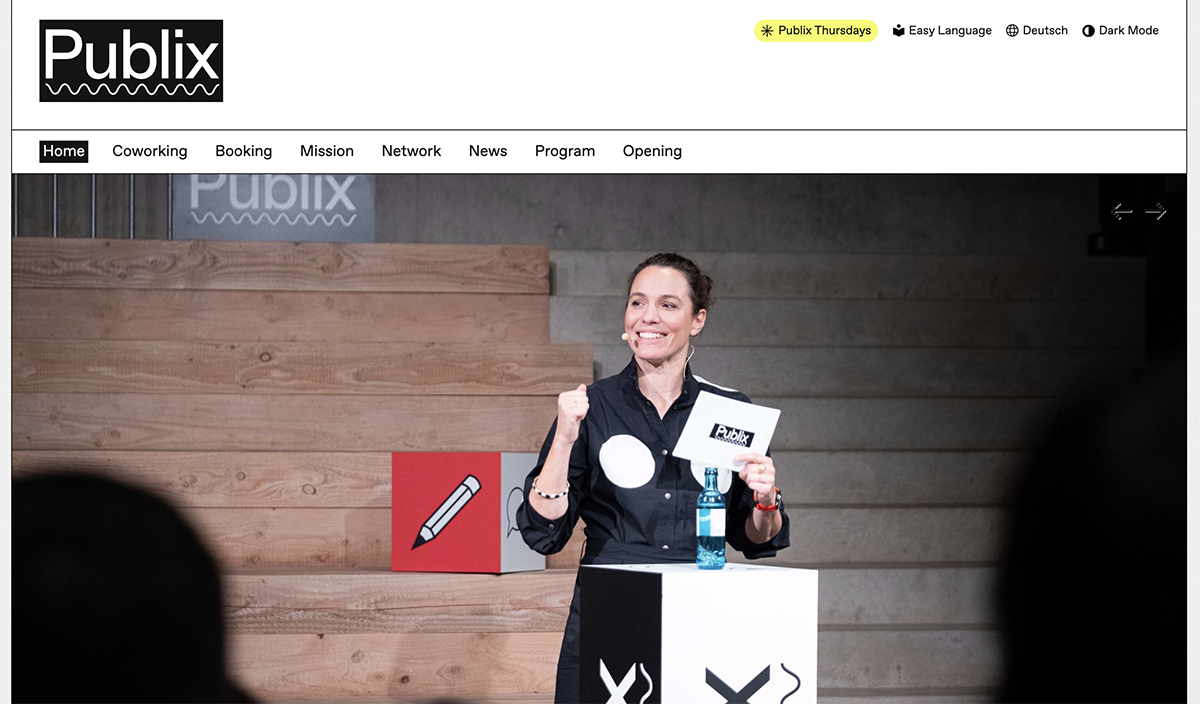
The International Journalism Festival weekly round-up. Stay up to date by subscribing to our newsletter, by following our Telegram channel, or by joining us on X and Facebook.
Publix – House for Journalism opens in Berlin: “Reshaping the role of journalism in society.” The Schöpflin Foundation brings together various initiatives and media projects in a new building. This is intended to strengthen journalism in Germany
Investigating state attacks on exiles: lessons from The Washington Post’s ‘Repression’s Long Arm’ series. “Transnational repression is no longer an exceptional tool, but a normal and institutionalized practice for dozens of countries that seek to control their citizens abroad,” states a recent report from Freedom House
How The Economist is using AI to extend its global reach. The Economist has found a way to publish AI-written translations without human intervention
X has been blocked in Brazil. Does it matter for journalism? Journalists from Brazilian digital news outlets Agência Pública, Poder360, and Núcleo discuss the implications of the block for news outlets in the country
We know why journalists leave the profession. A new study looks at why they stay. “The day-to-day work of news, journalists reminded us, was the opportunity to learn for a living.”
Uusi Juttu is trying to expand Zetland’s member-centric model to Finland. Interviews with Zetland’s co-founder and international director Jacob Moll and Uusi Juttu’s co-founder Antti Pikkanen
In the tenth year of McKinsey’s Women in the Workplace research, in partnership with LeanIn.Org, McKinsey senior partners Alexis Krivkovich, Lareina Yee and coauthors reflect on the notable gains women have made — and how their experiences at work are, in many ways, the same or worse than ten years ago. Check out the highlights and be sure to download the full report.

Rebooting the Minnesota Star Tribune: a conversation with Steve Grove. “We would like to see at least 25% of our P&L look different in a couple of years than it does now…I don’t think any media company right now can just be banking on subscriptions to save the day.”
How Russia used a fake video about RSF as war propaganda. Russian authorities and pro-Kremlin influencers have been spreading false information about alleged Reporters Without Borders (RSF) research into Nazi tendencies within the Ukrainian military, which featured in a viral video falsely attributed to the BBC. RSF exposes the inner workings of a disinformation campaign designed to justify President Vladimir Putin’s war narrative
Launching two new AI Journalism Labs at the Newmark J-School in 2025. “We hear the word ‘scary’ used a lot in connection with AI, which is not very helpful. We created the labs to empower journalists not to be afraid of this new technology but to experiment with it, apply it to their news careers and become part of the conversation,” said Marie Gilot, Executive Director of J+, the professional development arm of the Newmark J-School. Deadline for applications: 18 October
Local journalists try new methods to reach, serve, and build trust with audiences. “If you’re not reaching the people that you want to reach, then what’s the point of doing the work?”
‘This is a big chance for all of us’: Germany’s freedom hotel where exiled journalists take refuge. As attacks on the press rise, the House of Critical Voices offers sanctuary for media workers exposing abuses
More Americans – especially young adults – are regularly getting news on TikTok. In just four years, the share of adults who say they regularly get news from TikTok has grown about fivefold, from 3% in 2020 to 17% in 2024, according to a new Pew Research Center analysis
Image credit: screenshot from the home page of Publix


